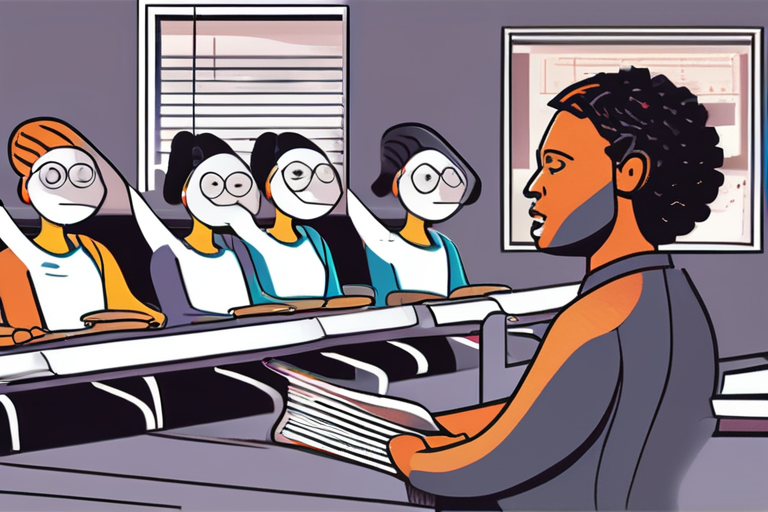Professor Clones Himself with AI Avatar to Democratize Online Learning
David Joyner, executive director of online education at Georgia Tech, has made headlines by cloning himself with an artificial intelligence (AI) avatar named "DAI-vid" as part of an experiment to revolutionize online learning. The project aims to make high-quality educational content more accessible and inclusive for students worldwide.
According to Joyner, the AI-powered avatar is designed to mimic his teaching style, allowing it to deliver lectures and interact with students in a way that simulates human interaction. "We're not trying to replace human teachers," Joyner said in an interview. "We want to augment their capabilities and make online learning more engaging and effective."
The experiment has sparked controversy among some educators who are concerned about the role of AI in the classroom. However, Joyner argues that AI can help bridge the gap between students from different backgrounds and provide equal access to quality education.
Joyner's approach is part of a growing trend in online education, where institutions are exploring innovative ways to use AI to enhance student learning experiences. Georgia Tech has been at the forefront of this movement, offering an ultra-cheap $7,000 computer science Master's degree program that has gained international recognition.
The project also involves Anant Agarwal, CEO of edX, a non-profit online learning platform that partners with top universities worldwide to offer massive open online courses (MOOCs). "We're excited about the potential of AI-powered avatars to democratize access to high-quality education," Agarwal said. "This technology has the power to transform the way we learn and make education more inclusive."
The use of AI in education is not without its challenges, however. Some experts have raised concerns about the potential for bias in AI-generated content and the impact on human teachers' jobs.
Despite these concerns, Joyner remains optimistic about the future of AI-powered online learning. "We're just getting started," he said. "The possibilities are endless, and we're committed to making this technology accessible to students worldwide."
As the experiment continues, educators and policymakers will be watching closely to see how AI-powered avatars like DAI-vid can shape the future of online learning.
Background
Georgia Tech has been a leader in online education for several years, offering innovative programs that have gained international recognition. The university's executive director of online education, David Joyner, has been at the forefront of this movement, exploring new ways to use technology to enhance student learning experiences.
The use of AI in education is a growing trend worldwide, with institutions exploring various applications, from personalized learning to automated grading. However, concerns about bias and job displacement have raised questions about the role of AI in the classroom.
Additional Perspectives
Dr. Kate Crawford, co-founder of the AI Now Institute at New York University, expressed concerns about the potential for bias in AI-generated content. "We need to be careful not to perpetuate existing inequalities through AI-powered education," she said.
On the other hand, Dr. Andrew Ng, AI pioneer and former CEO of Coursera, sees great promise in AI-powered online learning. "AI can help make education more accessible and effective, but we need to ensure that it's designed with equity and inclusivity in mind."
Current Status and Next Developments
The experiment is ongoing, with Joyner and his team continuing to refine the AI avatar and explore its potential applications. As the project evolves, educators and policymakers will be watching closely to see how AI-powered avatars like DAI-vid can shape the future of online learning.
In the meantime, Georgia Tech has announced plans to expand its online education programs, including the introduction of new AI-powered courses. The university's commitment to innovation in online education is expected to continue, with a focus on making high-quality educational content more accessible and inclusive for students worldwide.
*Reporting by Fortune.*



 Hoppi
Hoppi

 Hoppi
Hoppi

 Hoppi
Hoppi

 Hoppi
Hoppi

 Hoppi
Hoppi

 Hoppi
Hoppi











